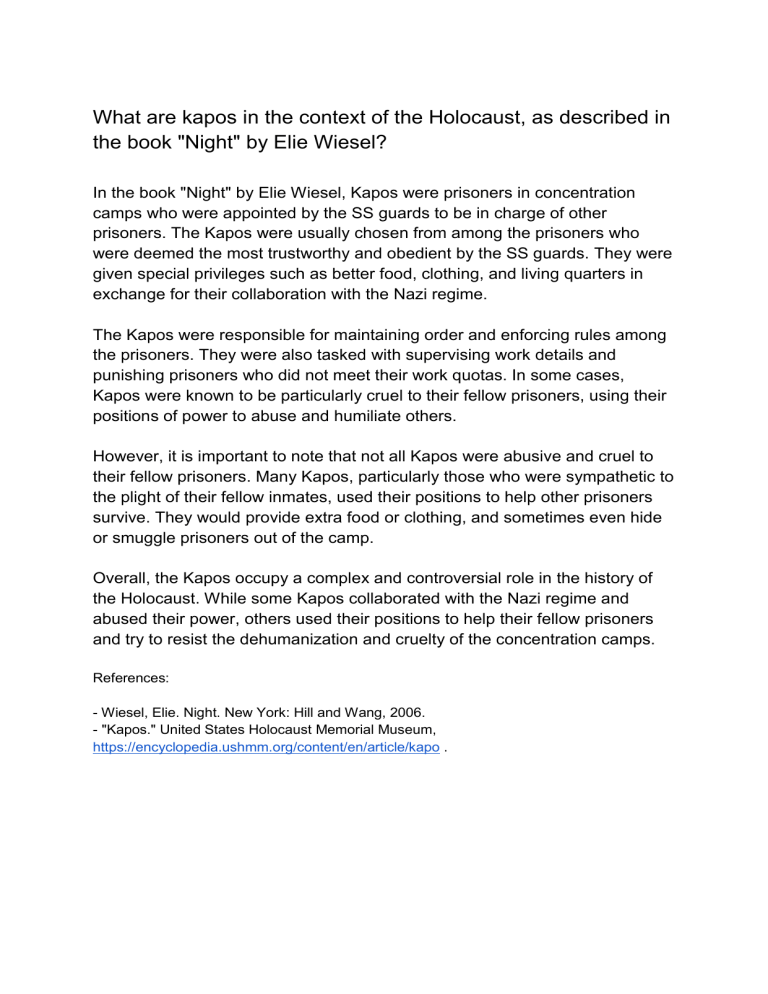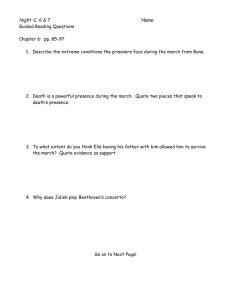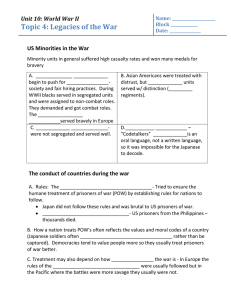What are kapos in the context of the Holocaust, as described in the book Night by Elie Wiesel
advertisement

What are kapos in the context of the Holocaust, as described in the book "Night" by Elie Wiesel? In the book "Night" by Elie Wiesel, Kapos were prisoners in concentration camps who were appointed by the SS guards to be in charge of other prisoners. The Kapos were usually chosen from among the prisoners who were deemed the most trustworthy and obedient by the SS guards. They were given special privileges such as better food, clothing, and living quarters in exchange for their collaboration with the Nazi regime. The Kapos were responsible for maintaining order and enforcing rules among the prisoners. They were also tasked with supervising work details and punishing prisoners who did not meet their work quotas. In some cases, Kapos were known to be particularly cruel to their fellow prisoners, using their positions of power to abuse and humiliate others. However, it is important to note that not all Kapos were abusive and cruel to their fellow prisoners. Many Kapos, particularly those who were sympathetic to the plight of their fellow inmates, used their positions to help other prisoners survive. They would provide extra food or clothing, and sometimes even hide or smuggle prisoners out of the camp. Overall, the Kapos occupy a complex and controversial role in the history of the Holocaust. While some Kapos collaborated with the Nazi regime and abused their power, others used their positions to help their fellow prisoners and try to resist the dehumanization and cruelty of the concentration camps. References: - Wiesel, Elie. Night. New York: Hill and Wang, 2006. - "Kapos." United States Holocaust Memorial Museum, https://encyclopedia.ushmm.org/content/en/article/kapo .





